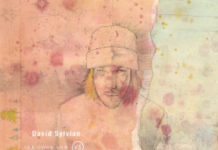By Mitch Rice
Music plays a vital role in film and storytelling, helping to create atmosphere, evoke emotions, and enhance the audience’s experience. the use of music in film and storytelling is an essential tool for filmmakers and storytellers, allowing them to connect with audiences on an emotional and visceral level and helping to bring stories to life in a powerful and memorable way.
The Function of Music in Film
The soundtrack of a film can definitely contribute to its popularity and success. A well-crafted soundtrack can enhance the emotional impact of the story, create a memorable atmosphere, and help to establish the film’s tone and style.
In fact, many iconic films are remembered as much for their soundtracks as for their plot or characters. Think of classic movies like “The Sound of Music,” “Grease,” or “Saturday Night Fever,” all of which feature memorable music that has become synonymous with the films themselves. Thousands of people started learning to play a musical instrument in order to be able to play their favorite pieces. Searching for best online piano lessons or violin classes raised thanks to fans who want to play their favorite pieces.
Similarly, a poorly executed soundtrack can detract from a film’s impact and make it less memorable. For example, if the music doesn’t match the tone of the story or feels out of place, it can be a distraction and pull the viewer out of the moment.
Overall, a carefully curated soundtrack can be a powerful tool for filmmakers, helping to create a more engaging and memorable film and contributing to its popularity and success.
The History of Music in Film
Music has been an integral part of the film industry since its early days. In fact, the first films were often shown with live musical accompaniment, either with a solo pianist or a full orchestra.
As the film industry grew and evolved in the early 20th century, music continued to play an important role, with composers like Max Steiner, Erich Wolfgang Korngold, and Bernard Herrmann creating iconic scores for films such as “Gone with the Wind,” “The Adventures of Robin Hood,” and “Psycho.”
In the 1960s and 70s, rock music began to make an impact in the film industry, with films like “A Hard Day’s Night” and “Easy Rider” featuring rock and pop music in their soundtracks. This trend continued into the 80s and 90s, with films like “Flashdance,” “Footloose,” and “Dirty Dancing” featuring popular music as an integral part of their storytelling.
The importance of music in storytelling and setting the tone for a film
Music can have a significant impact on storytelling and can be used to set the tone and enhance the emotional impact of a film. Music can be used to draw the viewer’s attention to a particular scene or moment, emphasizing its importance and driving the story forward. Music can also be used to convey emotion, whether it’s a sense of sadness, joy, or fear, helping to connect the viewer with the characters and their experiences.
Music establishes a particular mood or tone, whether it’s the excitement of an action scene or the somberness of a dramatic moment. It is used to build tension and suspense, keeping the viewer on the edge of their seat and heightening the drama of the story.
Famous Examples of Music in Film
There are countless examples of famous and influential uses of music in film, here are our top 3 of the best movie music.
- “Star Wars” – John Williams’ iconic score for the “Star Wars” franchise is instantly recognizable and has become synonymous with the films themselves. The epic, orchestral score perfectly captures the swashbuckling adventure of the series.
- “The Godfather” – The haunting, melancholy theme from “The Godfather,” composed by Nino Rota, is a classic example of how music can enhance the emotional impact of a film. The theme perfectly captures the mood of the story, conveying a sense of loss and tragedy.
- “Jaws” – The suspenseful, ominous theme from “Jaws,” composed by John Williams, is a masterclass in how music can build tension and enhance the drama of a scene. The relentless, repeating two-note motif is now instantly recognizable as a harbinger of danger.
These are just a few examples of the many ways in which music has played an important role in film, helping to define the story, the characters, and the cultural context in which the films were made.
Final thoughts
The music and film industries have a long and intertwined history, with music playing a crucial role in enhancing the emotional impact of films and helping to tell stories. From iconic film scores to popular songs on soundtracks, music has the power to set the tone, create a mood, and drive the narrative of a film. As such, music and film will likely continue to be closely connected, with both industries collaborating to create memorable and impactful stories that resonate with audiences around the world.






